#Arabella Mellor
Text
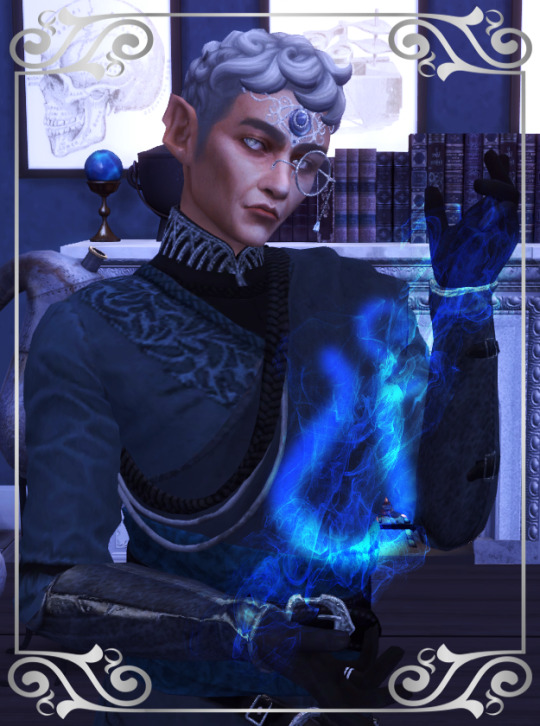
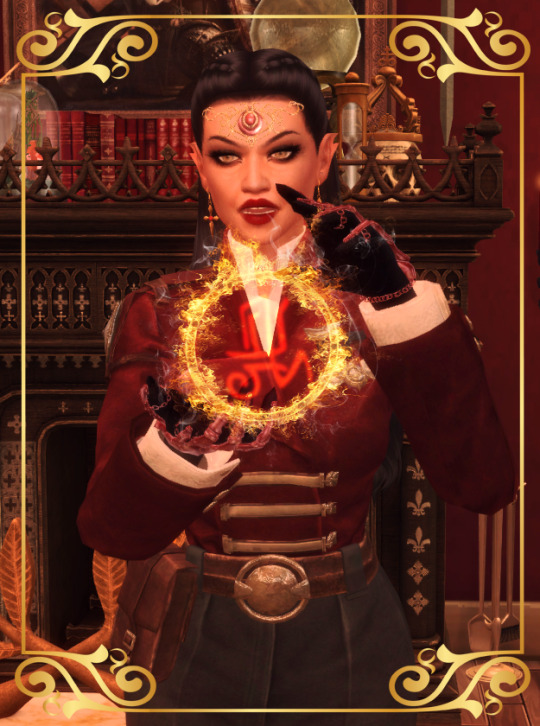


𝕿𝖍𝖊 𝕿𝖍𝖗𝖊𝖊 𝕱𝖔𝖚𝖗 𝕾𝖆𝖌𝖊𝖘 𝖔𝖋 𝕿𝖍𝖊 𝕾𝖈𝖍𝖔𝖔𝖑𝖘 𝖔𝖋 𝕸𝖆𝖌𝖎𝖈
Thackery Wyrmwood, the Sage of Alchemy. Lumiona Grimsbane, the Sage of Untamed Magic. Leopold Barkridge, the Sage of Practical Magic. Arabella Mellor, the Sage of Mischief Magic.
#TS4 Edit#TS4#Sims 4#TS4 Portrait#Sims 4 Spellcasters#Semi-Charmed Sims#Thackery Wyrmwood#Lumiona Grimsbane#Leopold Barkridge#Arabella Mellor#Hey Luna did we not already see this once before on your blog and then you deleted it#Yes but consider this:#The previous edits were ass.#I'm actually satisfied with these notify the presses#And just in case you're wondering where Morgyn Ember is:#Morgyn's still an apprentice#Lumiona's apprentice to be precise in my story#The Sage's apprentices are like next in line to be the Sage of a School of Magic once the reigning sage dies#like a Royal Line of Succession only not exactly?#Not that anyone asked for the intricate details of how the magic system works in my lore#But you're gettin it anyway if you read my tags#As a treat#I hide a lot of stuff in the tags to be fair#Semi-charmed edits
16 notes
·
View notes
Photo

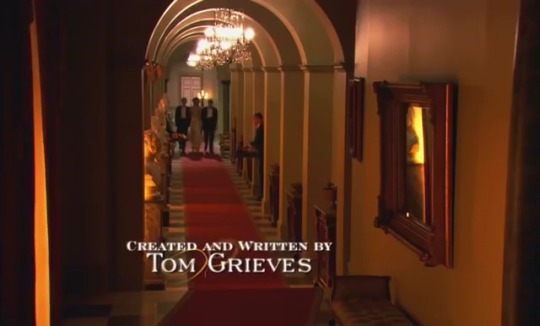
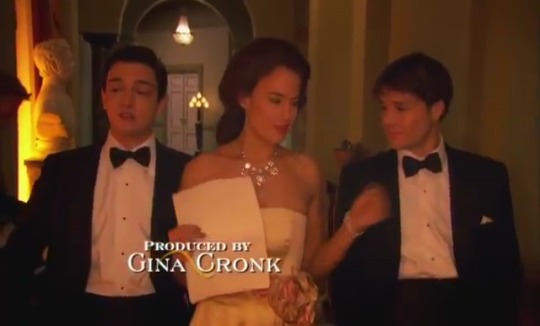
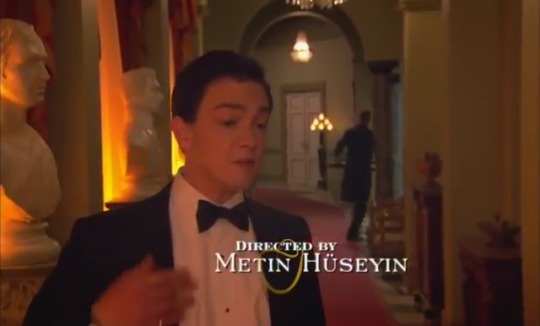
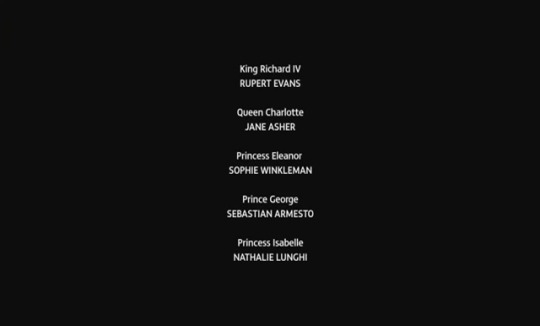
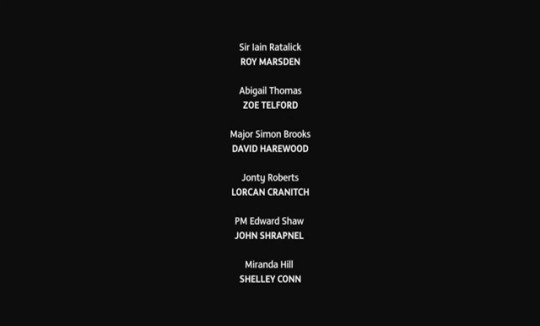
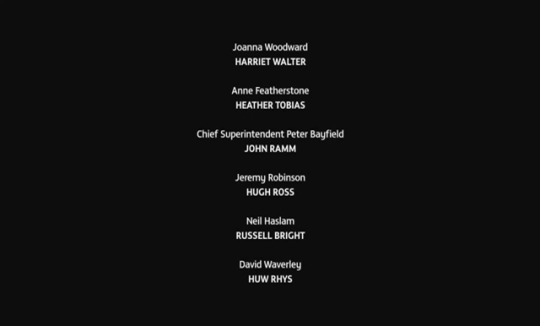
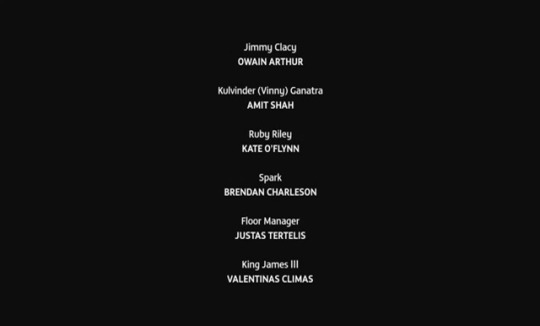
The Palace - ITV STV UTV - January 14, 2008 - March 3, 2008
Drama (8 episdes)
Running Time: 60 minutes
Stars:
Rupert Evans as King Richard IV
Jane Asher as Queen Charlotte
Sophie Winkleman as Princess Eleanor
Sebastian Armesto as Prince George
Nathalie Lunghi as Princess Isabelle
Roy Marsden as Sir Iain Ratalick
Zoe Telford as Abigail Thomas
David Harewood as Major Simon Brooks
Lorcan Cranitch as Jonty Roberts
Hugh Ross as Jeremy Robinson
John Ramm as Chief Superintendent Peter Bayfield
Fiona Button as Lucy Bedford
Shelley Conn as Miranda Hill
John Shrapnel as PM Edward Shaw
Christine Bottomley as Natalie
Clemency Burton-Hill as The Hon. Alice Templeton
Anton Lesser as Archbishop of Canterbury
John Benfield as Ray Mellor
Laura Haddock as Lady Arabella Worthesley Wolsey
Dominic Jephcott as Dr Philip Hooper
Frank Mills as Jack 'Dobbsy' Dobbs
James Thornton as Milton Bishop
Harriet Walter as Joanna Woodward
Huw Rhys as David Waverley
Owain Arthur as Jimmy Clacy
Kate O'Flynn as Ruby Riley
Russell Bright as Neil Haslam
Heather Tobias as Anne Featherstone
Amit Shah as Kulvinder 'Vinny' Ganatra
Valentinas Klimas [lt] as King James III
#The Palace#TV#ITV#UTV#STV#2000's#Drama#Rupert Evans#Jane Asher#Sophie Winkleman#Sebastian Armesto#Nathalie Lunghi
1 note
·
View note
Text
Strike: Lethal White Episode 1 Review – the Wedding Fallout and a Westminster Scandal
https://ift.tt/32pbEL7
Contains spoilers for Strike: Lethal White Episode 1
The last time we saw Cormoran Strike, he was barrelling up the M1 on a traditional rom-com mission, but with a certain vagueness of purpose. Was he rushing to Robin’s wedding to give her back her old job, or to declare his love and stop her from saying ‘I do’? Whichever it was, she tied the knot and we didn’t see what followed. Two years later, our invitation to the reception has arrived.
What followed was pretty flagrant on Robin’s part. Dancing the first dance at her wedding to the lyrics ‘If I could, then I would’ while locking eyes over her new husband’s shoulder with the man who really gets her, then abandoning that dance to run after the retreating figure of said man is almost enough to make you feel sorry for Matthew.
Except, it’s impossible to feel sorry for Matthew. He’s the All Bar One of people. He’s Fizz Friday and cash ISAs and European stag dos. He grades women like homework, makes fun of disabilities, cheated on Robin at her lowest point and almost certainly is the specific kind of prong who thinks you can’t spend less than two month’s salary on a new watch. Compared to Cormoran Strike, Matthew is… well, Matthew. What was Robin thinking?
Being a clever, practical sort, she was probably thinking that the throbbing will-they-won’t-they magnet-pull at the heart of Strike would stop dead if she and Cormoran were ever to actually get it on. Wedded to Matthew, this show’s an ongoing concern. If Robin had done what we all wanted and stopped that insipid first dance dead, torn off her veil and leapt into Strike’s strong Cornish arms, what would be left to watch? Yes, there are still the murders, but by this point they’re a secondary consideration – gruesome icing on the delicious cake that is Robin and Cormoran’s lip-gnawing rightness for each other. As long as these two are trying to tease out other people’s secrets while steadfastly ignoring their own, there’s a future for Strike.
Episode one of Lethal White divided its attention satisfyingly between the professional and the personal. The first hour established the new case while tracking the emotional aftermath of Robin’s wedding. In summary: Cormoran’s heart-broken, Robin’s in a bad way, and both are refusing to admit anything’s wrong.
Things are decidedly wrong. Robin’s having panic attacks and being forced to serve housewarming party chorizo to the braying, diamond-wearing Sloane Matthew cheated on her with. Cormoran rebounded straight from that wedding hug into a relationship with vintage dress shop owner Lorelei (Natalie Gumede) who seems great other than the major flaw of Not Being Robin.
Read more
TV
Cormoran Strike: Why Now is the Right Time for the TV Detective’s Return
By Louisa Mellor
TV
Strike Recap: Cormoran, Robin and the Story So Far
By Louisa Mellor
(It’s little wonder Robin’s anxiety has spiked, by the way – that new place must come with a mortgage the size of Sweden. Given this show’s lurid stories about dismembered limbs arriving in the post and ritualistic entrails-removal, Strike’s most far-fetched event thus far was Robin’s mother kindly offering her £500 for a rental deposit on a London flat. And the rest, mum.)
Putting the interpersonal drama to one side, the new case comes with a brand new context for Strike. Previous series have taken the investigators to the worlds of high-fashion celebrity and literary publishing, this one’s set against the backdrop of Westminster politics and counter-culture activism. All the expected caricatures were present and correct, from the nose-ring Marxists to snobbish, sneering Tories named Arabella Cruelty and Jasper Chisel. That last one’s real, by the way, spelled ‘Chiswell’ but pronounced ‘Defund public services. Austerity was caused by Labour overspending’. Subtlety has never been Strike’s bag. When this show has a point to make, it does so with a sledge hammer rather than a scalpel, which is all part of the fun. This series’ point appears to be the cynical but not unpopular perspective that when it comes to politics, they’re all as bad as each other.
Cue some Mr Ben undercover work and another new accent for Robin (Holliday Grainger’s glorious regional repertoire now extends to a Pony Club RP as goddaughter to a Tory MP). She’s infiltrated the Houses of Parliament to dig up dirt on the Labour MP blackmailing the Right Hon. Chiswell about an unspecified matter, while Cormoran’s on the trail of an unhinged man who as a child says he witnessed a girl being strangled on the Uffington White Horse. Both are connected, as the next three episodes will untangle.
The new case is technically an old one – the decades-old murder of a young girl, as reported by a man who claims to have witnessed it aged six. The end-of-episode cliffhanger left us on the point of learning whether his account was reliable. Having followed his info to the purported location of the girl’s grave, Robin discovered bones. Who they belong to is for tomorrow night’s instalment to tell.
The mystery’s off to a promising start, with the show at a point where our investment in the characters’ personal drama is paying dramatic dividends.
Strike: Lethal White continues on Monday the 31st of August at 9pm on BBC One.
Strike: Lethal White continues on Monday the 31st of August at 9pm on BBC One.
The post Strike: Lethal White Episode 1 Review – the Wedding Fallout and a Westminster Scandal appeared first on Den of Geek.
from Den of Geek https://ift.tt/3hHo8nT
0 notes
Text
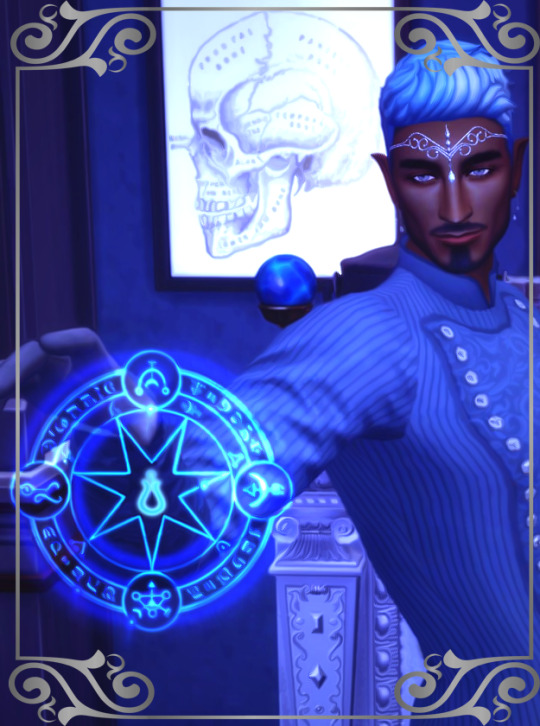



𝕬𝖕𝖕𝖗𝖊𝖓𝖙𝖎𝖈𝖊𝖘 𝖙𝖔 𝖙𝖍𝖊 𝕾𝖆𝖌𝖊𝖘 𝖔𝖋 𝖙𝖍𝖊 𝕱𝖔𝖚𝖗 𝕾𝖈𝖍𝖔𝖔𝖑𝖘 𝖔𝖋 𝕸𝖆𝖌𝖎𝖈
Osran Argent, Apprentice of Thackery Wyrmwood, The Sage of Alchemy. Morgyn Ember, Apprentice of Lumiona Grimsbane, The Sage of Untamed Magic. Sabine "Beanie" Redwood, Apprentice of Leopold Barkridge, The Sage of Practical Magic. Cliona Caligari, Apprentice of Arabella Mellor, The Sage of Mischief Magic.
#TS4 Edit#TS4 Portrait#The Sims 4#TS4#TS4 Spellcasters#Realm of Magic#Semi-Charmed Sims#Osran Argent#Morgyn Ember#Beanie Redwood#Cliona Caligari#The Sage's Apprentices#Semi-Charmed Edit
17 notes
·
View notes
Text
I May Destroy You: a Bold Show Only a Survivor Could Write
https://ift.tt/3h2mtbs
Warning: contains spoilers for the I May Destroy You finale
Michaela Coel’s I May Destroy You is a tour de force creation of laser-focused storytelling. A creator working at the current height (but clearly not yet the apex) of her power, Coel’s take on trauma and consent is the kind of prestige exploration that only a survivor could write. The series starts with Coel’s pitch-perfect take on the nuts and bolts of trauma, from the intrusive thoughts and sarcasm toward art therapy to the ringing we hear when main character Arabella is triggered to Arabella downplaying her own trauma by comparing it to various global tragedies. But Coel goes beyond that and puts every kind of consent under the microscope, pushing the audience to look at the aspects of rape culture that make us the most queasy, even if – especially if – they’re inside ourselves.
With Arabella’s drug-induced blackout in the first episode, I May Destroy You sidesteps the depiction we’re most used to seeing of sexual assault – detailed, graphic imagery of “what happened” – in favor of a more guttural and nuanced portrait of the thing that lasts: surviving sexual assault. As a result, the show has so much more to say than the usual fare, staying with Arabella and her friends for at least a year to see the changes great and small after the assault, and to examine consent across their lives from a number of different angles. Only someone who’s spent so much time swimming in this topic could write it so intensely and accurately.
Usually, when rape and sexual assault are depicted in mainstream storytelling, they are used as a storytelling device — a time-saving shorthand to further the plot for a male character who has a relationship with the victim, to show how deeply evil the perpetrator is, or perhaps to make the victim seem more sympathetic or to provide her with sufficient motivation to be an active protagonist in her own story. (Why else would LadyCops exist?) These tropes are discussed in heteronormative terms because most sexual violence on screen ignores the reality that men are survivors too, and that LGBTQ people are disproportionately affected, as are, for that matter, BIPOC (Black, Indigenous, and People of Color).
Even when stories are primarily about sexual violence, the narratives tend to follow the same repetitive beats. The rape revenge movie, the Good Survivor™ who self-actualizes their way to justice—and also love! It’s lazy storytelling to retread the same arcs, but with the exception of a wonderful few, like Sweet/Vicious, The Assistant, The Magicians (which righted itself after a triggering start) and hopefully the forthcoming Promising Young Woman and Run, Sweetheart Run, it’s near-universal.
Enter I May Destroy You.
Drawing from a personal experience of sexual assault, Michaela Coel’s 12-episode show is a fictional depiction of Arabella, a millennial writer living in London who was drugged and raped while out for a drink one night when procrastinating on a deadline. Like many survivors, it takes Arabella some time to accept the label the police investigators assign to what happened to her, though they generally treat her well, certainly better than we’d expect here in the States. Don’t get too comfortable, though – for as well as Arabella is treated, her friend Kwame, a queer Black man, experiences something entirely different when he goes to report a rape.
From the beginning, it’s clear the investigator doesn’t understand sex between men and isn’t interested in taking Kwame’s information. He is afforded no privacy while the investigator takes his statement, while a door with a sign saying it must be closed is clearly left open. Kwame isn’t offered support or understanding – instead there’s a sense of judgment surrounding the circumstances, since he used a hookup app. The investigator brushes off the possibility of taking a DNA sample since, they say it wouldn’t prove anything since they had consensual sex, ignoring that at least then they would know it was the correct person. The entire interview is far too casual, with the investigator asking if he was penetrated or not almost as an afterthought, on their way out the door. We don’t have to imagine what an interview with a woman reporting sexual assault would look like, because we’ve just seen it, a few episodes ago. Even between two young Black Londoners with immigrant parents, there’s a hierarchy of privilege and treatment.
Kwame internalizes his experience and withdraws from the world. It takes his friends a long time to realize something is the matter, in part due to concern over Arabella. When they do, Arabella isn’t supportive and doesn’t equate their experiences, even going so far as to accuse Kwame of manipulating or somehow violating the consent of a woman he slept with by not disclosing his sexuality, as though anyone is entitled to that information in the first place. (Kwame primarily sleeps with men but patiently explains that it’s a spectrum and that after being raped, sleeping with men isn’t safe for him, he’s interested in sleeping with women, and he’d like to explore that.) For her part, the white woman Kwame slept with seemed all too eager to fetishize a Black man and then sing the n-word and use the f-word. He called her out on the latter, she became indignant, and she weaponized the language of consent and rape culture to turn the conversation off of her use of slurs and onto him, calling him cancelled and a predator. In her words, “I guess anything that you may have found offensive you wouldn’t have heard if you hadn’t have come into my house under false pretenses,” and I truly hope she warmed up before that stretch.
Read more
TV
I May Destroy You Review: Fresh, Frank, Fluent Drama
By Louisa Mellor
TV
Unbelievable review: an insightful masterpiece from Netflix
By Delia Harrington
The fact of being a survivor alone doesn’t make a person an expert on all things consent and sexual violence. Some survivors choose to go deep on the research, become a certified rape crisis counselor, earn their Master of Social Work degree, or otherwise advocate for survivors in a technical capacity above and beyond their personal experience. But many do not, and it takes years for those who do. Survivors are not infallible; some of the most damaging, victim-blaming things I’ve heard have come from survivors in the early days of denial or crisis, including myself. The awful things we’ve said are usually more about the internalized shame and doubt we’re feeling about our own story than anyone else.
In Arabella’s case, becoming a warrior-survivor makes her feel strong and safe. Her and Terry’s limited understanding of sexuality causes them to be confused by a gay man wanting to have sex with a woman at all, and she gets hung up on that rather than seeing kinship with Kwame and understanding that sex with men is a safety issue for him at the time. Instead, she sees kinship with the racist, sexist white woman Kwame had the misfortune of hooking up with. At this moment in time, Arabella is more comfortable placing Kwame in a box where all men are perpetrators, and any information not shared is manipulation, rather than viewing him as a fellow survivor.
It’s completely understandable. It’s sadly not all that rare. And it’s completely unfair to Kwame. It’s also the kind of messy dynamic most people would not dare to write, let alone lay at the feet of a lead character who’s a survivor of sexual assault. But there’s more humanity in Coel’s take on survivors as fumbling, imperfect, traumatized beings than some sort of beatified victim persona or the ruined/broken/fallen woman trope. Survivors aren’t perfect or magic; we’re people healing from trauma. And for a decent part of the series, Arabella, like so many of us, is pretending she either has nothing to heal from or that healing isn’t an active pursuit. Wouldn’t it be weirder if we were just completely fine?
Coel captures the difficult phenomenon of social media as a public survivor. The push-pull of receiving much-needed support from unseen online followers, while fending off disturbing efforts from trolls and an inner urge to lean too hard on strangers. Social justice can make a survivor feel powerful, and online activism is the most readily accessible for most survivors. At any time of the day or night, you can send off a tweet or post and hear back from a chorus of support – or not. But like any coping mechanism, it helps until it doesn’t.
Being a public survivor turns you into a beacon for others in need. In many ways it’s a good thing, but receiving dozens of survivor stories every single day can become overwhelming. How do you respond adequately to all of them? How do you connect people to help if they need it? How do you read them all without triggering yourself? Coel deftly shows the realistic downsides of social media activism without lampooning it. It’s not that social media is ineffective, so much as it consumes Arabella. The survivors in her DMs need real professional assistance, something she can’t provide – she’s still going through it herself. As things come to a head toward the end of the season, Coel shows the other side of what it means to be a personality who becomes famous for their social posts on a traumatic topic. Yes, Arabella says a lot of smart things about sexual violence. But Arabella also needs to put down the phone and eat a real meal, get a good night’s sleep, go to group therapy, and spend time in the present tense with her friends.
Finally, there is the show’s ending. One could be forgiven for mistaking I May Destroy You for a whodunnit. After all, the primary question most sexual violence narratives ask are who did it, what exactly did they do, how devastated is the victim, and how will the perpetrator be punished? But in its kaleidoscope of possible endings and Arabella’s command that all of her perpetrator’s various incarnations leave her apartment, she and the show make it clear that this isn’t really about her perpetrator after all. It’s about Arabella, her healing, and the people who make her life full and strong. So she goes to the garden and hugs her neglected roommate Ben, their tending of plants (at publisher Sally’s suggestion) marking the passing of time.
While many survivors desire justice, the law and order portion of surviving is limited, if it exists at all, compared to disclosing to loved ones, getting triggered in public, reevaluating relationships with victim-blamers, having tough conversations about consent, negotiating how to keep a job and housing with lowered productivity – all things Arabella has worked through over the course of the season. Viewers may want to see fire and brimstone, but that would be unrealistic. It also might not even help. And as the various scenarios played out, presumably all versions of how it could have gone down plucked from Arabella’s mind, it’s not like survivors haven’t thought about this before. Instead, a part of her heals and moves on. She doesn’t forget, but she’s not in crisis or living on a knife’s edge anymore. She has enough psychic distance to write her book. She can put her friends’ needs above her own again, when they need her.
The ending may not feel satisfying to everyone, but it’s real. It certainly resonates with me, in spite of the somewhat stressful, chaotic nature of watching her spend so much time in the presence of her perpetrator. These are all very real dynamics that are playing out all the time, and the public conversation is catching up to that. It’s time that our media did too, rather than retreading the same old ground, but it’s not altogether surprising that only someone who’s thought about the topic so deeply would know how. The world of surviving sexual violence is rich with stories and experiences, if only people would actually look. That’s why it’s so frustrating to see the same stories told about this topic over and over again. But when survivors like Michaela Coel are in the driver’s seat, everything changes for the better. In I May Destroy You, she slices through the quaint stories we’re used to hearing, in favor of nervy narratives that reveal queasy truths we might not yet be ready for. One might assume that the show’s title is the perpetrator speaking to Arabella, or vice versa. But as we the audience hide from the truth about rape culture, wrapped up cozily in our own myths and assumptions, it turns out the title is the voice of Coel, speaking head on to all of us, with a glint in her eye.
The post I May Destroy You: a Bold Show Only a Survivor Could Write appeared first on Den of Geek.
from Den of Geek https://ift.tt/2Wkcqqw
0 notes